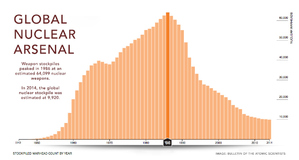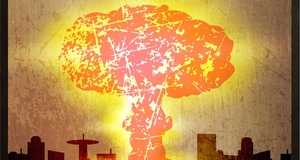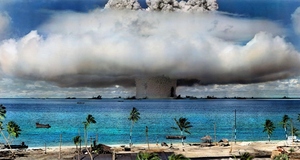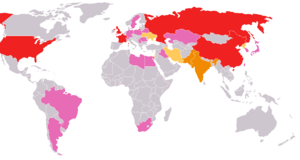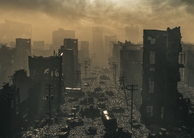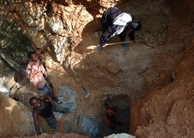What to do With Nuclear Waste? The Rise and Fall of Yucca Mountain
By
2010, Vol. 2 No. 03 | pg. 2/2 | « Recently, given the cost disadvantage of long-term storage and the fact that it does not really solve the problem, scientists have been pushing for a switch of focus to recycling spent fuel. Much of the fuel that is considered spent by US standards has life left in it, and can be reprocessed into other forms of fuel used in further power production (Geiselman, 2005). Many other countries already recycle their spent fuel, which reduces nuclear waste formation as well as lessening the need for dangerous nuclear fuel mining operations and usage of a finite resource. The practice of spent fuel recycling had previously been banned in the US in 1977 for fear of its usage in nuclear weapons, but the ban was overturned in the 1980’s and scientists are now making quite a case for reprocessing (Geiselman, 2005). Although the Yucca Mountain site was fervently supported and virtually pioneered by the outgoing Bush administration, President Barack Obama does not share President George W. Bush’s views that Yucca Mountain would be a solution to the problem. He has publicly stated that although he believes that a solution to nuclear waste processing should be developed before more nuclear reactors are built, he does not support the dumping of nuclear wastes at Yucca Mountain (Kriz, 2008). Furthermore, in May the US Government approved a 2010 Budget Proposal from the Obama administration that almost completely cut funding to the Yucca Mountain program, leaving very little funding with the intent to research and develop alternatives to the Yucca Mountain site. And so it seems that America’s once “answer to nuclear waste” was not really an answer at all, but more of a logistical question, that no one could ever completely answer. Having virtually given up on Yucca Mountain, and the $9 Billion they’ve already spent on research and testing, the US government and Department of Energy are now back to the drawing board looking for another long-term solution to deal with the 67,000 tons of spent nuclear waste we have already accumulated, and for the waste we will generate in the future. Now, more than ever, it is imperative that a true solution for nuclear waste be developed, not only to deal with the dangerous waste we have already accumulated, but also to allow the expansion of the US nuclear power program.ReferencesBloomfield, B. P., & Vurdubakis, T. (n.d.). The secret of Yucca Mountain: Reflections on an object in extremis. Environment and Planning D: Society and Space, 23, 735-756. Forest, D. (2002, Summer). Burial ground: Fear and loathing at Yucca Mountain. OnEarth, 24(2), 20. Geiselman, B. (2005, August). Analysts call for recycling of spent nuclear fuel rods. Waste News, 11(9). Kriz, M. (2008, June). Obama on energy and the environment. National Journal, 40(24), 2. Kriz, M. (2009). Death knell for Yucca Mountain? The Environmental Forum, 26(4), 8. Schneider, E. A., Deinert, M. R., & Cady, K. B. (n.d.). Cost analysis of the US spent nuclear fuel reprocessing facility. Energy Economics, 31(5), 627-634. Slattery, R. (2004, August 16). Court says Yucca Mountain design unsafe. High Country News, 36(15), 6. Warren, L. M. (2005). Case Notes - Regulatory challenge: Implications for radioactive waste management in the United States. Environmental Law Review, 130-149. Winograd, I. J., & Roseboom, E. H., Jr. (2008, June 13). Yucca Mountain Revisited. Science, 320, 1426-1427. Suggested Reading from Inquiries Journal
Inquiries Journal provides undergraduate and graduate students around the world a platform for the wide dissemination of academic work over a range of core disciplines. Representing the work of students from hundreds of institutions around the globe, Inquiries Journal's large database of academic articles is completely free. Learn more | Blog | Submit Latest in Environmental Studies |








